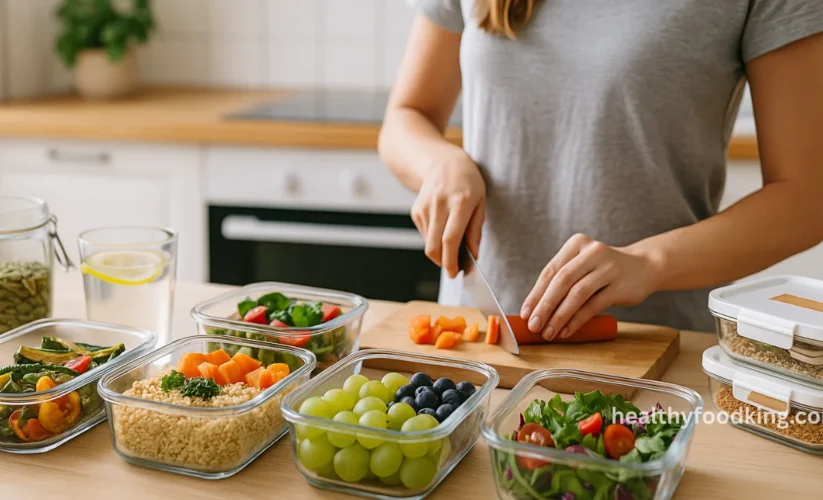
No Time to Cook? Here’s How to Meal Prep Like a Pro!
A hectic life often doesn’t allow time to eat healthily. Taking processed food on the run or ordering take-out food is an easy way out when work, travel, or family demands become more. However, poor nutrition may influence energy levels, concentration, and even long-term health. The solution? Meal prepping. Fresh and healthy food can be prepared at any time with minimum planning and will help to save some time and not stress about cooking every day. This is an easy guide on how to master meal prep even in the busiest weeks.
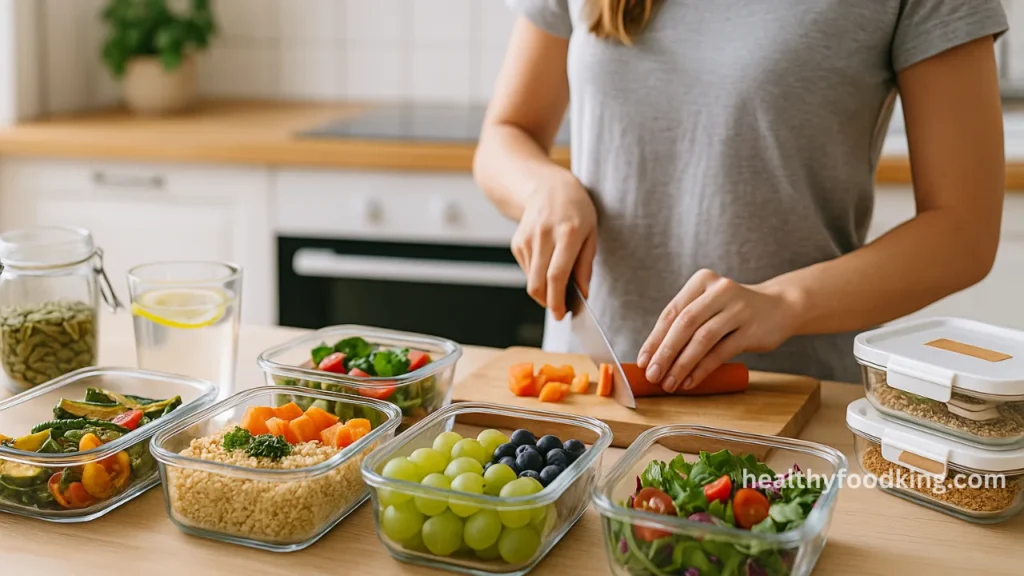
What Is Meal Prepping?
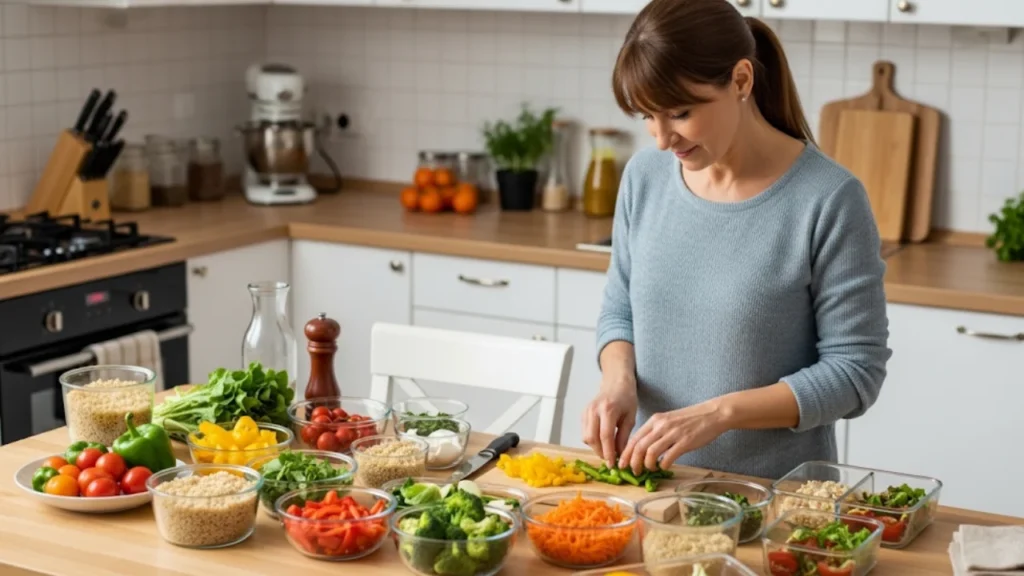
Meal prepping is the act of preparing meals ahead of time, both partially and fully. This would be in the form of cutting up vegetables, preparing grains, or even entire meals that would just need heating up. It does not need the skill of a chef but only a little bit of planning and regularity. Prepared foods help save time, reduce food wastage, and promote a balanced diet.
Why Meal Prep Works So Well

There is more to meal prepping. It promotes conscious eating. Last-minute food choices are unhealthy, but when food is prepared in advance, one will not make such choices. It also saves money as the demand for takeout orders is reduced daily. Meal prep can help a lot to regulate the amount of food and keep a healthy balance, as many health experts suggest.
Nutrition experts usually recommend the use of simple meals based on whole foods with high concentrations of fiber, protein, and good fats. The best meals are those that contain cooked lentils, whole grains, nuts, seeds, fresh fruits, and vegetables that are in season.
Set a Prep Day – Don’t Leave It to Chance
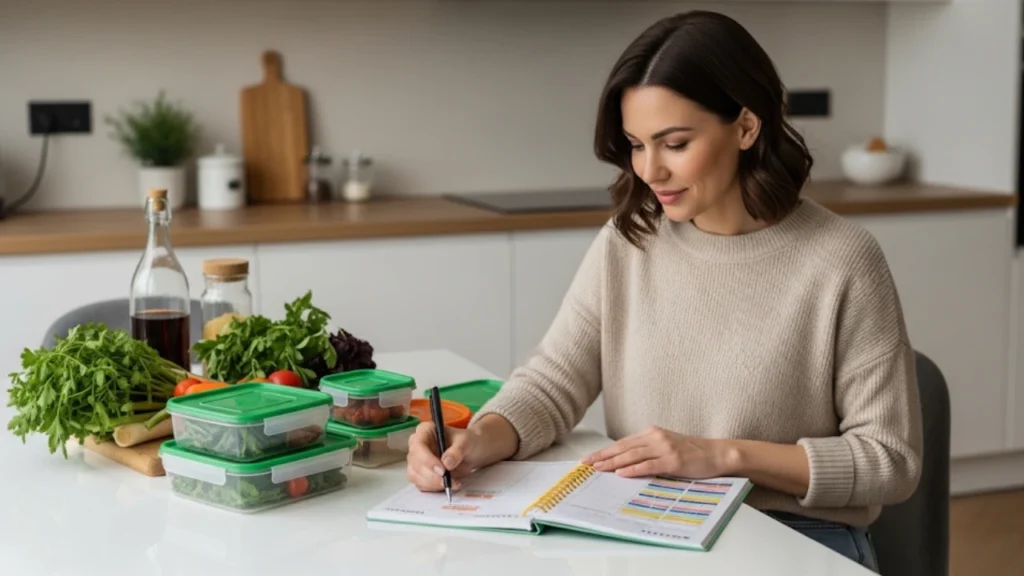
The initial step towards effective meal prep is that you have to select one day of the week as a prep day. The best time is Sunday or any other less-than-busy day. During that time you can go ahead and plan meals, buy groceries as well as commence cooking. The habit is built by being on a fixed routine and it becomes easier as time progresses.
Even 2-3 hours of preparation on the weekends can prepare most of the meals of the week.
Plan Simple and Repeatable Meals
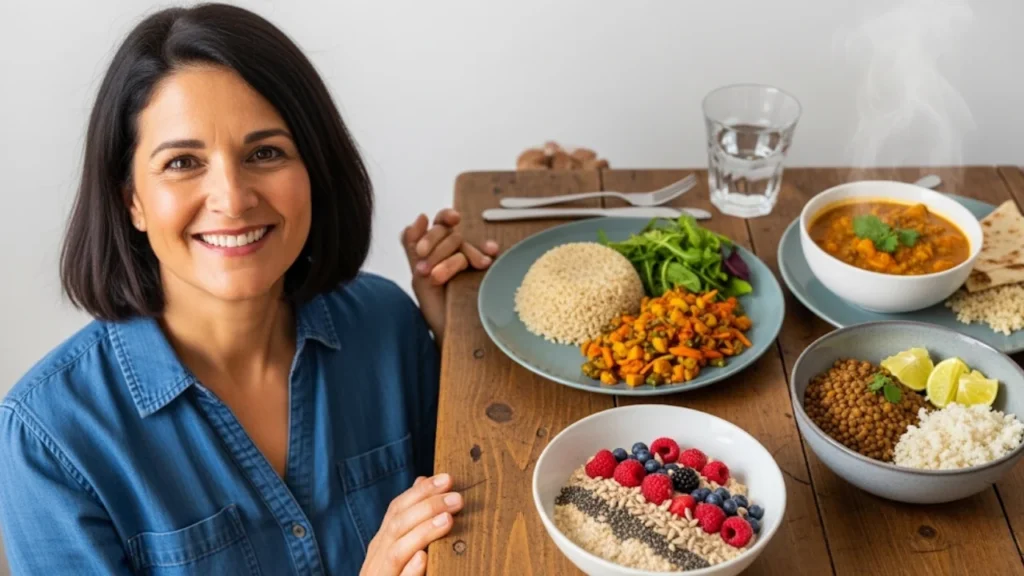
Do not make the weekly menu more complicated. Make it simple using simple recipes and basic ingredients. For example:
- Breakfast: Oats fruit and seeds
- Stir-fried vegetables over cooked brown rice lunch
- Dinner- Lentil curry and roti or quinoa
It is good to rotate 3-4 healthy meals in a week. Duplication saves time and the grocery lists are kept short. Additionally, home-cooked food can be modified quite conveniently in terms of flavor and diversity by altering spices or toppings.
Invest in Good Storage Containers
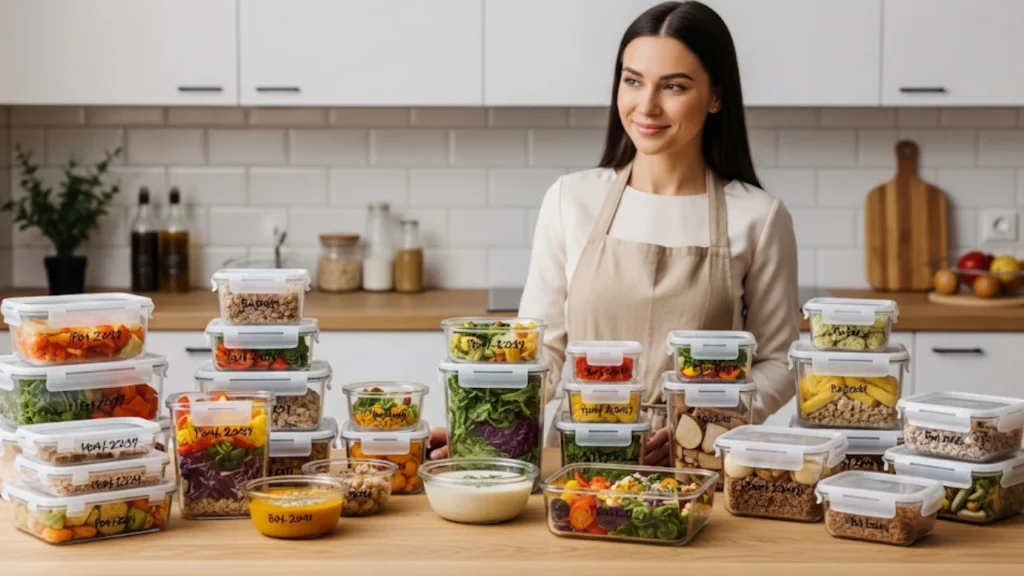
The most important thing in meal prep is food storage. Food is stored easily in air-tight containers and kept fresh. Keep in glass or BPA-free plastic containers with tight lids. Date each one to keep freshness.
Separate food in single portions. This saves time when one is in a rush in the mornings or lunch hours and prevents excessive eating.
Start with Base Ingredients
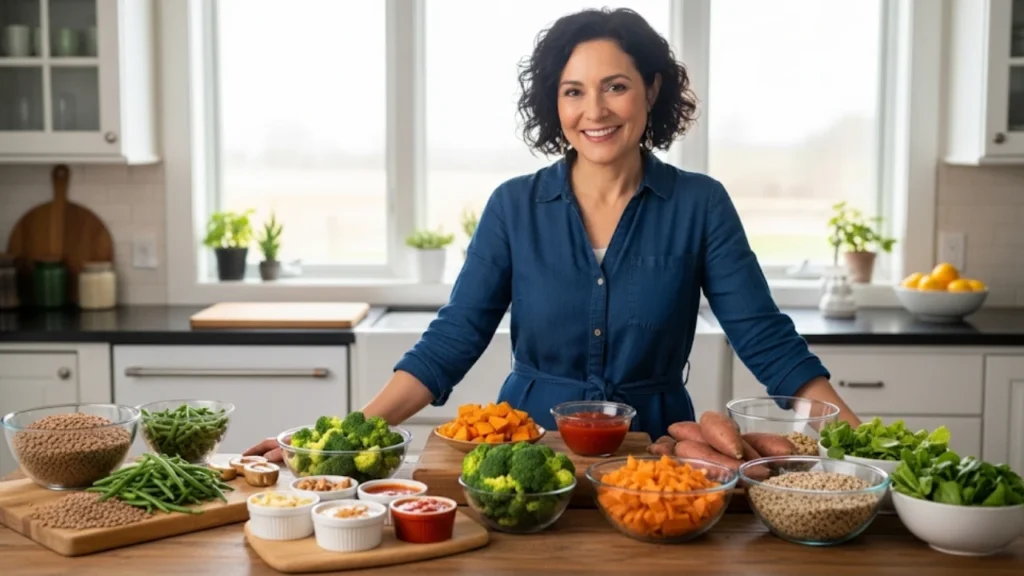
Preparing base ingredients in bulk helps save time during the week. Some great basics to cook in advance include:
- Boiled lentils or beans
- Steamed vegetables
- Roasted sweet potatoes
- Quinoa or brown rice
- Sauces (self-made such as tomato or peanut)
These can be easily combined and interchanged into different meals each day.
Fresh Fruit and Veggies: Cut and Store
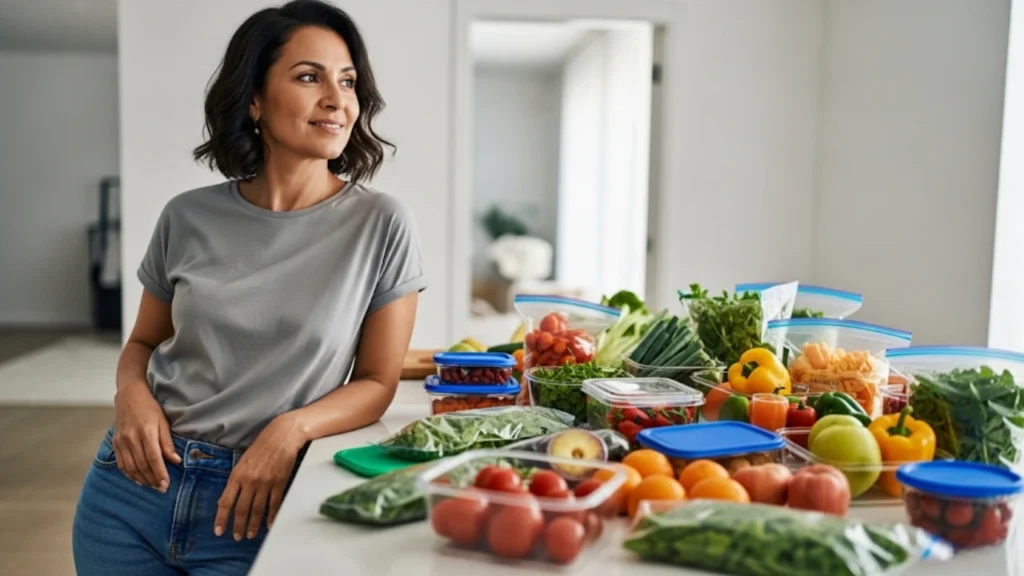
clean the vegetables and fruits and chop. Store them in the fridge in zip bags or closed containers. Store such moisture-sensitive foods as lettuce, cucumber, and berries dry and refrigerated environment. Veggies in the fridge are an incentive for healthy snacks and simple salads.
Use the Freezer for Long-Term Meals
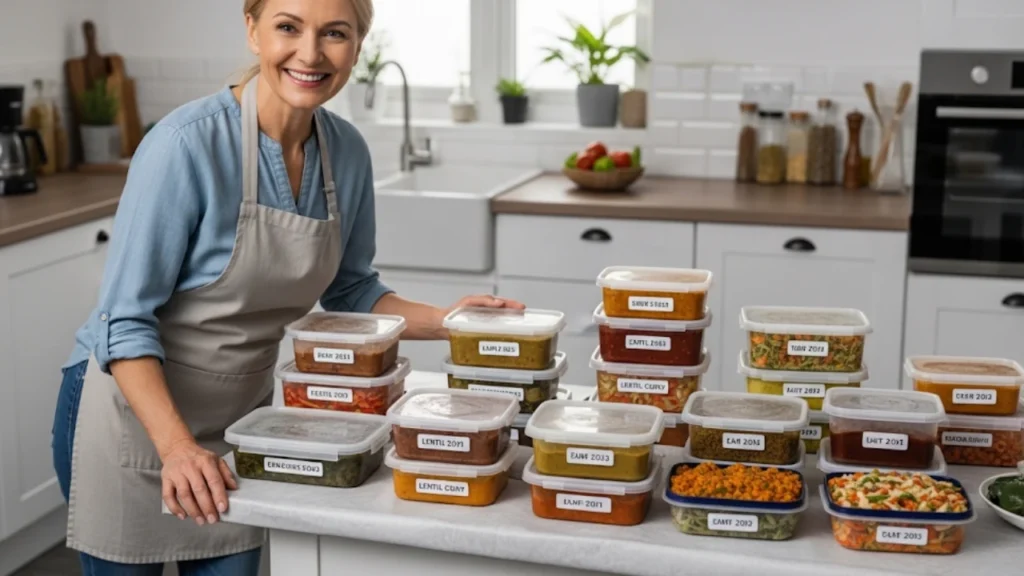
Some of these meals are stored for weeks with proper freezing. It is possible to freeze stews, soups, lentil curries, or veggie stir-fry dishes. Cool the meal followed by freezing. It is always necessary to label and date frozen food.
Thaw out overnight in the refrigerator or heat directly in a pan or microwave to use. Freezer meals can come in handy on a day when one cannot cook because they have been caught up in other activities.
Avoid Overcooking Greens and Veggies
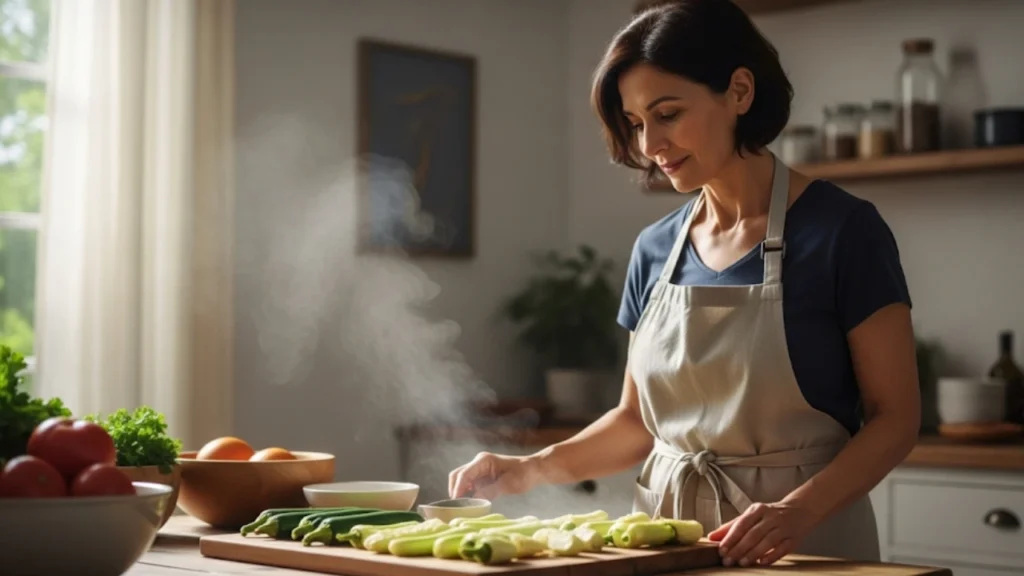
When steaming cooking vegetables, cook them or saute them. The overcooking may loss of nutrients and taste. Vegetables that have been cooked a little are fresher and can be reheated later without becoming mushy. Kale or spinach can be added at the last minute, just before consumption.
Don’t Forget Healthy Snacks
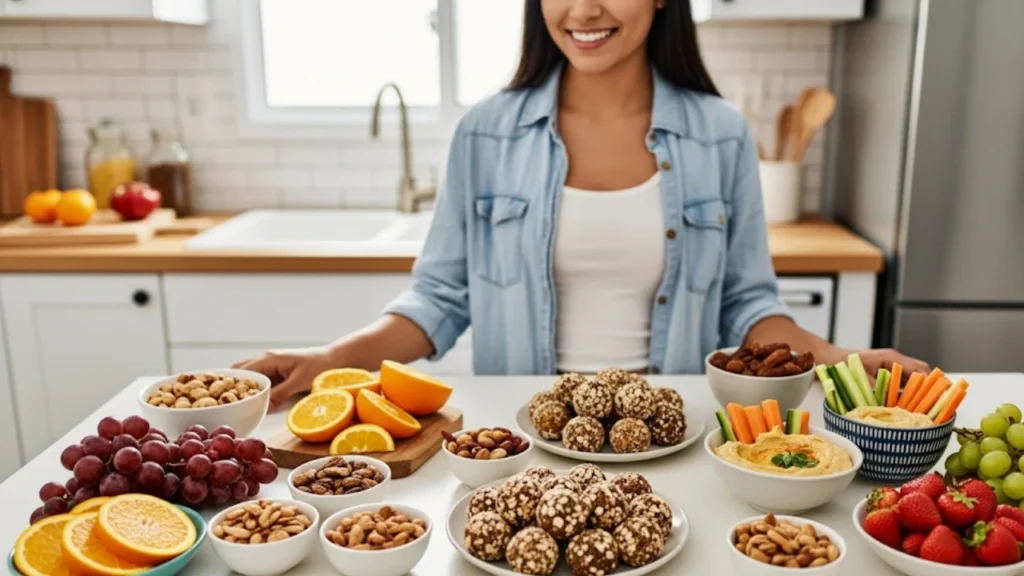
It is not all about the main meals. Small healthy snacks can be prepared to prevent the craving for unhealthy things. Have thee in hand:
- Seeds and roasted nuts
- Fruits on slices
- Energy balls, homemade with oats and dates
- Hummus and veggie sticks
They can be easy to prepare and ideal when you are hungry but it is between meals.
Stay Flexible and Consistent
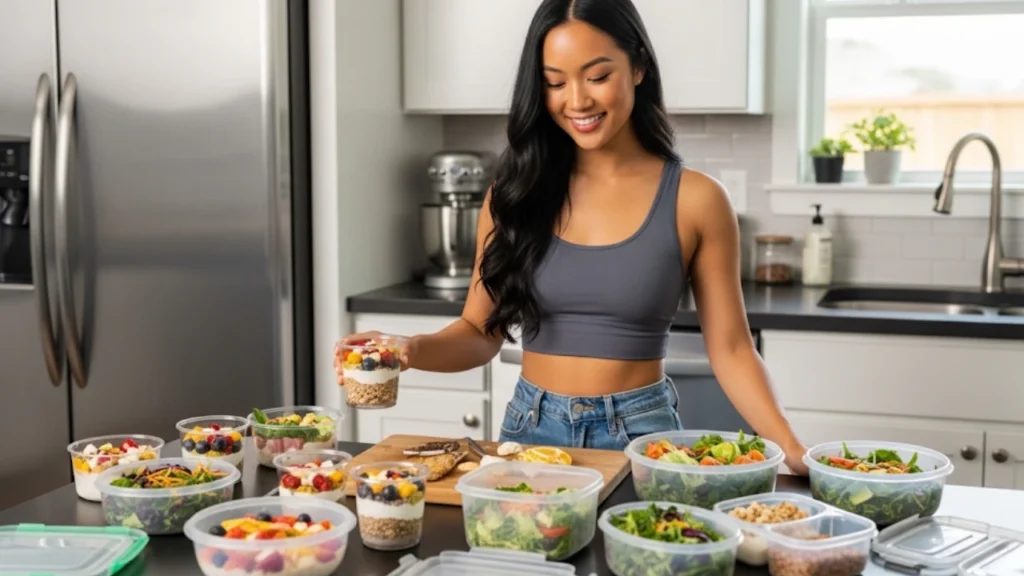
Meal prepping does not need to be ideal. Weeks can turn out to be busier than the others. It is always good to begin small rather than not start at all. Just preparing a meal and a breakfast meal is even enough to make life easier in a tight schedule.
Meal prep creates a habit and is stress-free. The stress level decreases daily and the vitality increases when there is readily eaten healthy food. With time, it becomes second nature.
Final Thought:
Meal prep is an easy thing and its advantages are huge. It saves time, contributes to a healthy lifestyle, and avoids mood bogs of busy weeks. Healthy dieting does not have to be one of those things that you logically know is good but you cannot carry it out in the most stressful schedule.
Disclaimer:
The information referred to in this article is generic and educational knowledge. It should not be mistaken as a form of professional medical or nutritional support.
Related Similar Posts:-
10 Foods You Should Never Store in the Fridge
Never Eat These Foods Together – Bad Pairings for Digestion
10 Foods You Should Never Eat or Mix After Eating Non-Veg
Why Are These Common Foods Bad During Periods?






